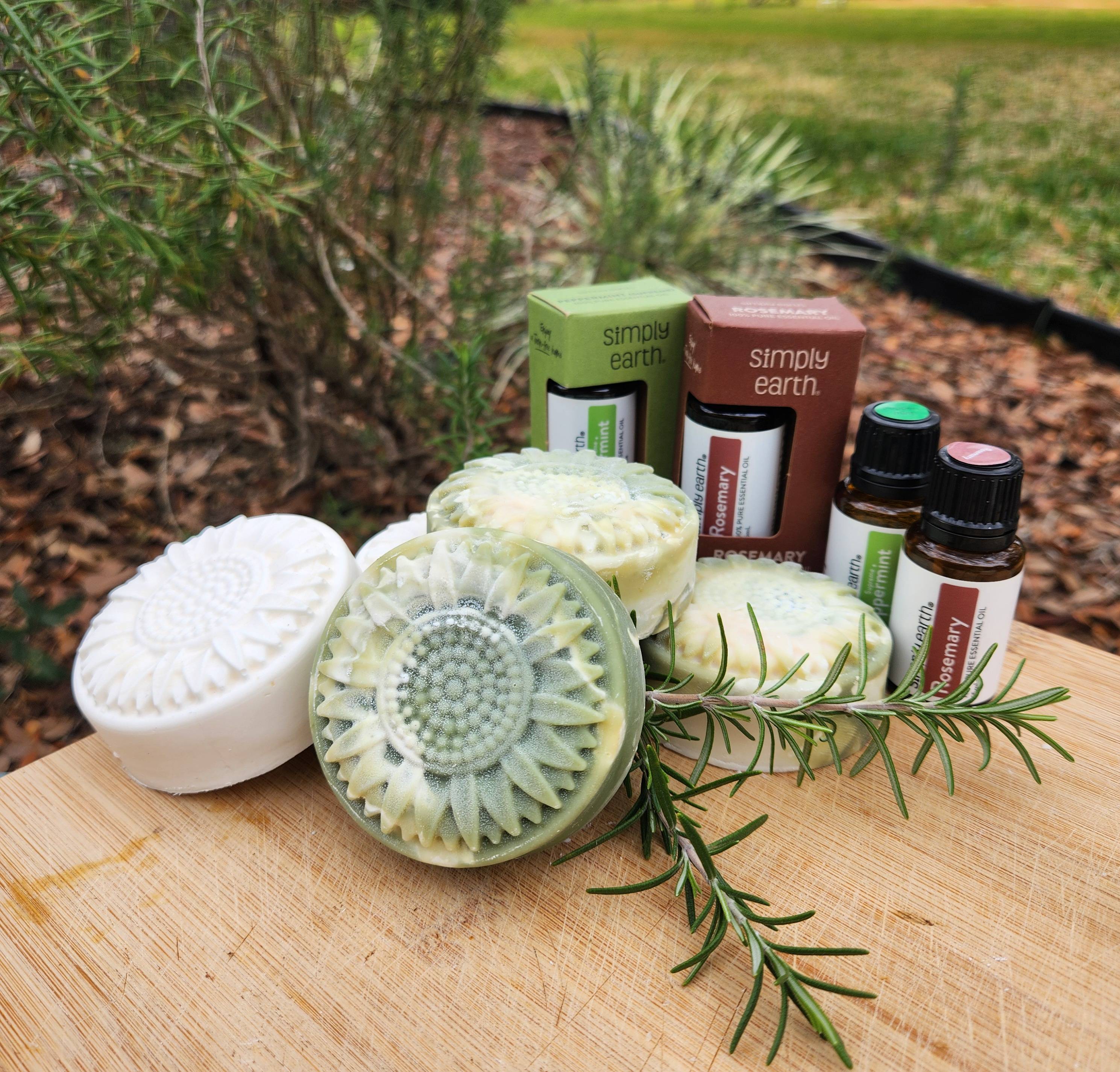Why Handmade Soap is a Luxurious (and Healthy!) Upgrade

Ditch the Detergent: Why Handmade Soap is a Luxurious (and Healthy!) Upgrade
We've all stood in the supermarket aisle, facing a wall of brightly colored bars and bottles promising squeaky-clean skin. But have you ever stopped to consider what exactly you're lathering onto your body? The truth is, the vast majority of commercially produced "soaps" aren't soap at all – they're detergents, packed with synthetic ingredients that can strip your skin of its natural moisture and even cause irritation.
Enter the world of handmade soap – a beautiful, artisanal alternative crafted with care and natural ingredients. It's more than just a way to wash; it's a sensory experience and a conscious choice for your health and well-being. Let's dive into the key differences and why making the switch to handmade soap is a decision your skin (and the planet!) will thank you for.
The Ingredient Lowdown: Nature vs. Synthetics
The fundamental difference lies in the ingredients. Commercial "soaps" often rely on harsh chemicals, synthetic fragrances, artificial colors, and preservatives. These detergents effectively remove oil and dirt, but in the process, they can also disrupt your skin's delicate natural barrier, leading to dryness, itchiness, and even allergic reactions. Many also contain sulfates like SLS and SLES, parabens, and phthalates – ingredients with potential health and environmental concerns.
Handmade soaps, on the other hand, are typically made with natural oils and butters like olive oil, coconut oil, shea butter, and cocoa butter. These nourishing ingredients are rich in vitamins, antioxidants, and fatty acids that cleanse gently while moisturizing and conditioning your skin. Natural colorants like clays and plant extracts add a touch of beauty, and essential oils provide delightful, natural scents with potential aromatherapy benefits.
The Glycerin Advantage: A Natural Moisturizer
A key component naturally produced during the soap-making process is glycerin. Glycerin is a humectant, meaning it attracts and retains moisture in the skin, leaving it feeling soft and supple. In commercial soap production, glycerin is often removed and used in more profitable products like lotions and creams. This leaves their "soap" bar less moisturizing and more likely to dry out your skin.
Handmade soap retains its natural glycerin, making it a much kinder and more hydrating option for cleansing. You might even find you need less moisturizer after switching to handmade soap!
Beyond the Basics: The Benefits of Choosing Handmade
Gentle on Skin: The natural ingredients and retained glycerin make handmade soap incredibly gentle, even on sensitive skin.
Rich in Nutrients: Plant-based oils and butters are packed with vitamins and antioxidants that nourish and protect your skin.
Natural Aromatherapy: Essential oils provide genuine, therapeutic scents that can uplift your mood or promote relaxation, unlike synthetic fragrances that can sometimes cause headaches or allergic reactions.
No Harsh Chemicals: You can feel good knowing you're not exposing your skin to potentially harmful synthetic ingredients, parabens, or sulfates.
Supports Small Businesses: By purchasing handmade soap, you're directly supporting artisans and small businesses in your community.
More Sustainable: Handmade soap production often involves more environmentally conscious practices, with less waste and the use of natural, biodegradable ingredients.
A Touch of Luxury: Handmade soaps are often crafted with care and attention to detail, making them a little indulgence in your daily routine. They can also make beautiful and thoughtful gifts.
Making Your Handmade Soap Last: Care Tips
Ready to embrace the world of handmade soap? Here are a few simple tips to help your bars last longer:
Use a Soap Dish: The most crucial step! Choose a dish that allows excess water to drain away from the soap. Soggy soap dissolves much faster.
Keep it Dry Between Uses: Try to keep your soap out of direct streams of water in the shower or sink.
Let it Cure: If you buy a fresh bar, letting it sit in a cool, dry place for a week or two can help it harden and last longer.
Consider Cutting Larger Bars: If you have a large bar, you can cut it into smaller pieces. Use one piece at a time and keep the others stored in a dry place.
Don't Store in Humid Environments: Avoid leaving your soap in overly steamy bathrooms for extended periods.
The Verdict: Treat Your Skin (and Yourself!)
The choice is clear. While commercially produced "soaps" may be cheaper and readily available, they often come at the cost of your skin's health and well-being. Handmade soap offers a luxurious, gentle, and nourishing alternative made with natural ingredients and a whole lot of love. By choosing handmade, you're not just cleansing your skin; you're supporting small businesses, embracing sustainability, and treating yourself to a little daily indulgence. So, ditch the detergent and discover the difference that real, handmade soap can make. You might just find you never go back!
